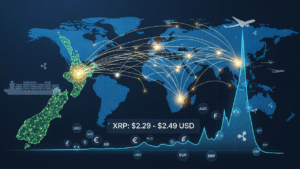Timur Turlov was born in 1987 in the suburban town of Lobnya, not far from Moscow’s Sheremetyevo Airport. His upbringing was marked by the turbulence that followed the collapse of the Soviet Union. Raised in a modest middle-class household without his biological father, who vanished during the economic and social chaos of the early 1990s, Turlov experienced the insecurity of that period firsthand.
Despite financial hardship, his family endured, relying on resilience and determination. The fall of the USSR plunged millions of Russian families into poverty, wiping out savings overnight. Western consumer goods entered the market for the first time, symbolizing opportunities and comfort that seemed distant to many. For the young Timur Turlov, this contrast ignited a lifelong fascination with the financial world.
Hollywood’s Influence on Timur Turlov’s Aspirations
Like many children of his generation, Timur Turlov was captivated by American films. Wall Street dramas portraying brokers and traders planted in his mind the connection between stock markets and prosperity. Movies such as Home Alone, with its spacious suburban home, highlighted the sharp divide between the cramped living conditions of post-Soviet Moscow and the lifestyle of American families. These images became early motivators in his pursuit of success.
The First Steps Toward a Career in Finance
By his teenage years, Timur Turlov had already decided he wanted to work in financial markets. At just 14, he opened a small brokerage account with $800 inherited from his grandfather. Although he quickly lost most of that capital, the experience gave him his first lessons in risk and discipline.
At 16, while still attending school, he secured an internship at World Capital Investments (WCI), a US firm operating in Moscow. Working late into the night to follow the New York Stock Exchange, Timur Turlov absorbed knowledge of American equities and trading strategies. This early exposure provided him with not only technical skills but also a sense of the tempo and culture of Wall Street.
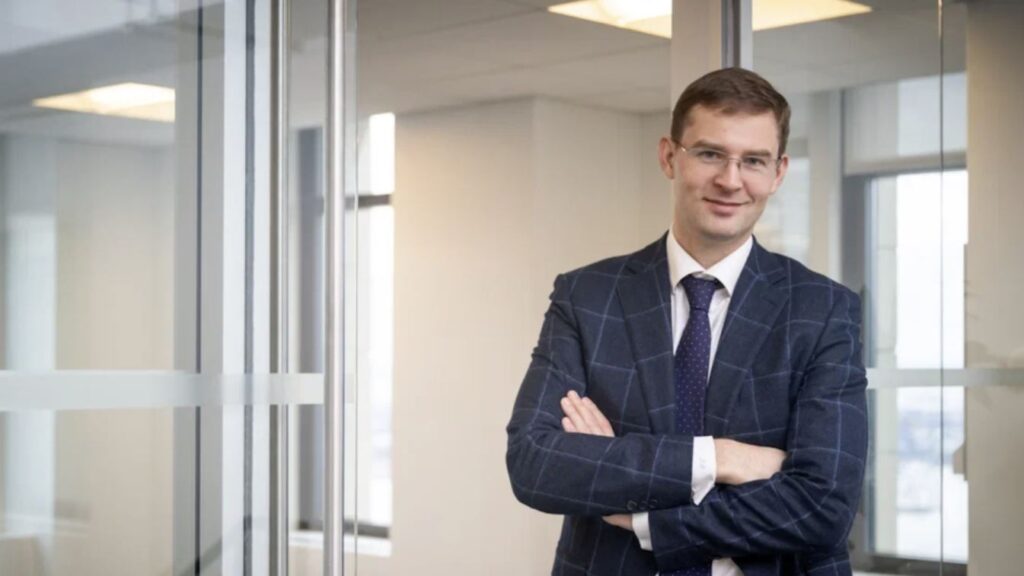
Building Experience: Timur Turlov at Uniastrum Bank
After gaining valuable training at WCI, Timur Turlov formally entered the financial industry in 2005 by joining the brokerage division of Uniastrum Bank. His role focused on connecting Russian investors with the U.S. stock market, a niche that few in Russia understood at the time. He quickly distinguished himself as one of the youngest managers in the organization, taking on responsibilities that spanned trading, risk management, and customer acquisition.
Uniastrum Bank thrived in the mid-2000s as Russia stabilized and the economy entered a boom cycle. The bank expanded rapidly into money transfers, brokerage services, and bond underwriting. Yet this expansion carried significant risks, particularly in the volatile Russian high-yield debt market.
The Global Financial Crisis and Its Aftermath
In 2008, when the global credit crunch struck, Uniastrum was heavily exposed to Russian junk bonds. The collapse in international liquidity created a wave of defaults, and the bank was unable to refinance its liabilities. By the end of that year, Uniastrum sold an 80% stake to Bank of Cyprus, but the damage was already done.
Although the U.S. trading department led by Timur Turlov remained profitable, the bank closed down its operations. Turlov, then only 21 years old and newly married, suddenly found himself unemployed. The crisis marked a turning point: instead of seeking another job, he resolved to launch his own venture.
The Entrepreneurial Mindset of Timur Turlov
The 2008 crash demonstrated to Timur Turlov that even established banks could collapse under poor risk management. At the same time, his own department had proven resilient, showing that demand for access to U.S. markets was not going away. Using his severance pay and pooling resources with colleagues, he raised around $100,000 to start a boutique brokerage firm.
This moment marked the birth of what would eventually become Freedom Holding Corp. Inspired by both chess strategy and Hollywood’s rags-to-riches narratives, Timur Turlov approached the new business with a long-term vision and readiness to sacrifice short-term comfort. His philosophy was clear: reinvest every profit, never stop innovating, and aim for sustainable growth even in difficult conditions.

Timur Turlov and the Birth of Freedom Finance
In 2008, amid the ashes of the global financial crisis, Timur Turlov launched the venture that would grow into Freedom Holding Corp. With only a small pool of capital — about $100,000 gathered from severance payments — he and his partners opened a modest office in Moscow. The company’s mission was simple yet ambitious: provide Russian investors with access to U.S. stock markets.
The early days were far from glamorous. The firm rented a single small room in a business center, relying on cold calls and word-of-mouth referrals. Many potential clients were skeptical. Why should they trust an unknown startup, especially when established banks had just collapsed? But Timur Turlov persisted, combining relentless sales efforts with his deep knowledge of the American equity system.
By 2009, Freedom Finance had started to gain traction. Average account sizes hovered around $20,000, with clients ranging from professionals to small business owners. Turlov reinvested every dollar of profit back into the company, delaying personal rewards in favor of growth.
Building a Reputation Through Persistence
The years between 2009 and 2015 were a test of endurance. Freedom Finance operated with limited resources and unimpressive offices, but the vision of Timur Turlov never wavered. In 2009, he began building one of the most efficient operations, drawing inspiration from the aggressive sales culture portrayed in Hollywood films like The Wolf of Wall Street.
The Russian economy remained volatile, and after years of crises, many investors were eager to diversify away from local markets. U.S. equities appeared safer and more attractive, and Freedom Finance positioned itself as a bridge between Russian capital and American opportunities.
Kazakhstan: A Strategic New Market for Timur Turlov
By 2011, Timur Turlov recognized that Russia’s competitive financial sector offered limited room for further growth. He began searching for new markets where his company could stand out. A friend suggested Kazakhstan, a rapidly developing Central Asian republic with untapped potential in financial services.
Turlov’s first trip to Kazakhstan left a strong impression. He discovered a market rich in opportunity but underserved by modern brokerage and banking solutions. Moreover, Kazakhstan’s economic strategy emphasized integration with global financial systems, which aligned perfectly with Turlov’s expertise in U.S. markets.
Within a year, he acquired a local brokerage firm, Amat Finance, and established operations in Almaty. Though initial regulatory setbacks threatened the business, he persisted, later purchasing Seven Rivers Capital in 2012. By 2015, he expanded further by acquiring the Russian Bank for Regional Development (VBRR), securing a Kazakh banking license. This move allowed Freedom Finance to evolve from a brokerage into a full-fledged financial group.
The Rise of Freedom Finance in Central Asia
Kazakhstan quickly became the epicenter of Timur Turlov’s growing empire. The firm participated in the government’s landmark “People’s IPO” program, which offered citizens shares in large state-owned enterprises through the sovereign wealth fund Samruk-Kazyna. This initiative positioned Freedom Finance as one of the country’s leading broker-dealers.
Freedom Finance had opened more than 50 branches across Kazakhstan, providing services that ranged from stock trading to banking. The company’s customer base expanded rapidly. Kazakhstan was no longer just a market — it had become the core of the company’s regional strategy, a proving ground for new products and a gateway to Central Asia.
Timur Turlov Takes Freedom Holding Public
For Timur Turlov, the ultimate milestone was not only to dominate the Kazakh financial market but also to secure recognition on Wall Street itself. That goal became reality in 2019, when Freedom Holding Corp completed a reverse merger with BMB Munai, a Kazakh oil and gas company incorporated in Nevada. After years of complex legal work and fundraising, the company successfully listed on the Nasdaq exchange.
On October 16, 2019, Timur Turlov rang the opening bell in New York, symbolizing the start of a new chapter. This moment represented the fulfillment of a childhood dream inspired decades earlier by American films about Wall Street. It also established Freedom Holding as the first investment company from Central Asia to achieve a U.S. listing.
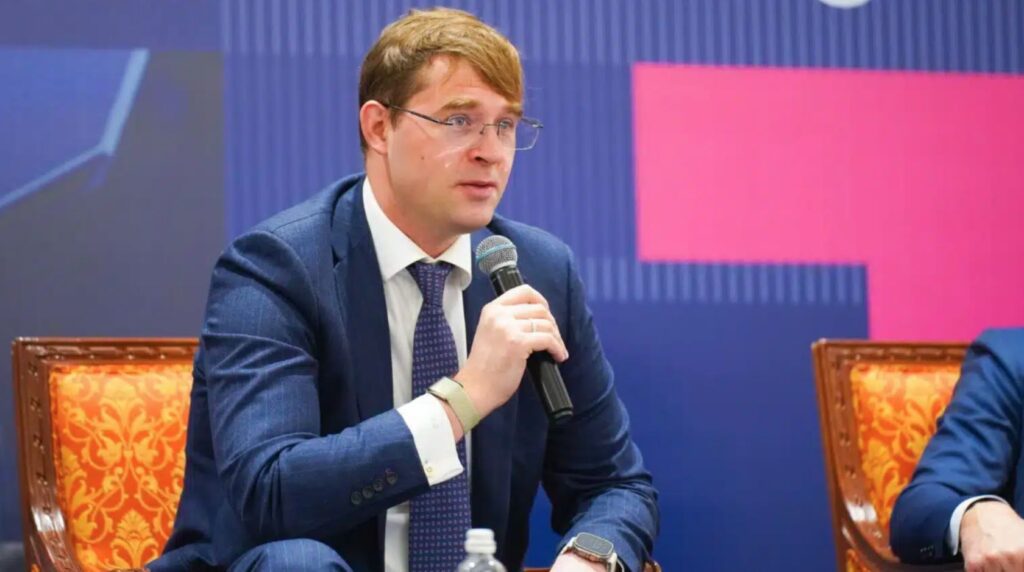
The Prestige and Challenges of a Nasdaq Listing
While the listing elevated Freedom’s profile, it also brought scrutiny. Public markets reward transparency, but can also expose companies to criticism. Timur Turlov now had to navigate not only competition but also the gaze of regulators, journalists, and short-sellers.
In 2021, Freedom Holding acquired broker-dealer Prime Executions, securing a seat on the New York Stock Exchange. The deal included office space at 40 Wall Street.
Wealth Surge and Forbes Recognition
The same year, Freedom Holding’s share price skyrocketed, rising more than 200%. As the majority shareholder, Timur Turlov saw his personal wealth soar, propelling him into the ranks of the world’s billionaires. By the end of 2021, Forbes listed him with a net worth of $2.1 billion, a remarkable achievement for someone who had started with just $800 in a teenage brokerage account.
Facing Allegations and Defending Freedom Holding
Success, however, also attracted critics. In 2021, Hindenburg Research, a prominent activist short-seller, published a report alleging irregularities at Freedom Holding, including claims of sanctions evasion and questionable offshore structures. The report temporarily pressured the company’s stock price.
Timur Turlov defended his firm, emphasizing that all operations were legal and in line with industry practices at the time. He pointed out that entities such as FFIN Belize were originally set up because Kazakhstan’s regulatory framework did not yet permit certain electronic trading activities. The company’s credit ratings remained strong, and its fundamental business continued to expand despite the controversy.
Timur Turlov and the Evolution of a Digital Ecosystem
While Freedom Holding Corp began as a brokerage business, Timur Turlov envisioned something far larger: a comprehensive digital ecosystem capable of managing every aspect of daily life. This strategy took shape through the launch of the Freedom SuperApp, which combines financial services with lifestyle products.
Unlike traditional banks, which typically focus on savings and loans, Turlov’s model was inspired by ecosystems in Asia that integrate payments, e-commerce, and digital identity systems. For him, the competition was no longer between banks or brokers — it was between platforms.
Financial Services at the Core
The Freedom SuperApp initially offered standard services such as brokerage accounts, debit and credit cards, and online banking. But under Timur Turlov’s leadership, the app rapidly expanded to cover much more. Today, customers can apply for consumer loans, car loans, and even mortgages entirely online. Freedom Bank Kazakhstan, the backbone of the ecosystem, has become one of the country’s fastest-growing financial institutions.
Insurance also plays a major role. Through subsidiaries like Freedom Life and Freedom Insurance, the app now sells over half of all new mandatory car insurance policies in Kazakhstan. The ability to handle payments, claims, and renewals digitally has significantly reduced acquisition costs and streamlined operations.
Beyond Finance: Lifestyle and Entertainment
What sets the SuperApp apart is its inclusion of non-financial services. Customers can book flights, hotels, and concert tickets directly from the app. Partnerships with retailers enable grocery delivery, while Freedom Ticketon and Aviata bring entertainment and travel options under the same roof.
Timur Turlov also sought to create a local alternative to Netflix in Kazakhstan. Freedom secured licensing deals with Hollywood studios to launch its own streaming service, a move that not only diversified revenue but also increased daily engagement with the app.
Government Integration and Digital Identity
Kazakhstan’s advanced digital government infrastructure has been a crucial advantage for the ecosystem. Citizens can use their digital ID to open bank accounts, apply for loans, and even transfer property ownership, all within hours.
As Timur Turlov often highlights, this integration allows Freedom Holding to operate with minimal paperwork and maximum efficiency. Customers and regulators alike benefit from transparency, while the company reduces operational costs.
Competing with Kaspi and Other Regional Players
Freedom’s biggest competitor in Kazakhstan is Kaspi, another fintech giant with its own superapp. Yet Timur Turlov believes the market is large enough for both players, especially as Central Asia embraces digital transformation. With over 85% of payments already cashless in Kazakhstan, adoption rates are among the highest globally.
The success of the SuperApp in Kazakhstan serves as a blueprint for expansion across Central Asia and beyond.
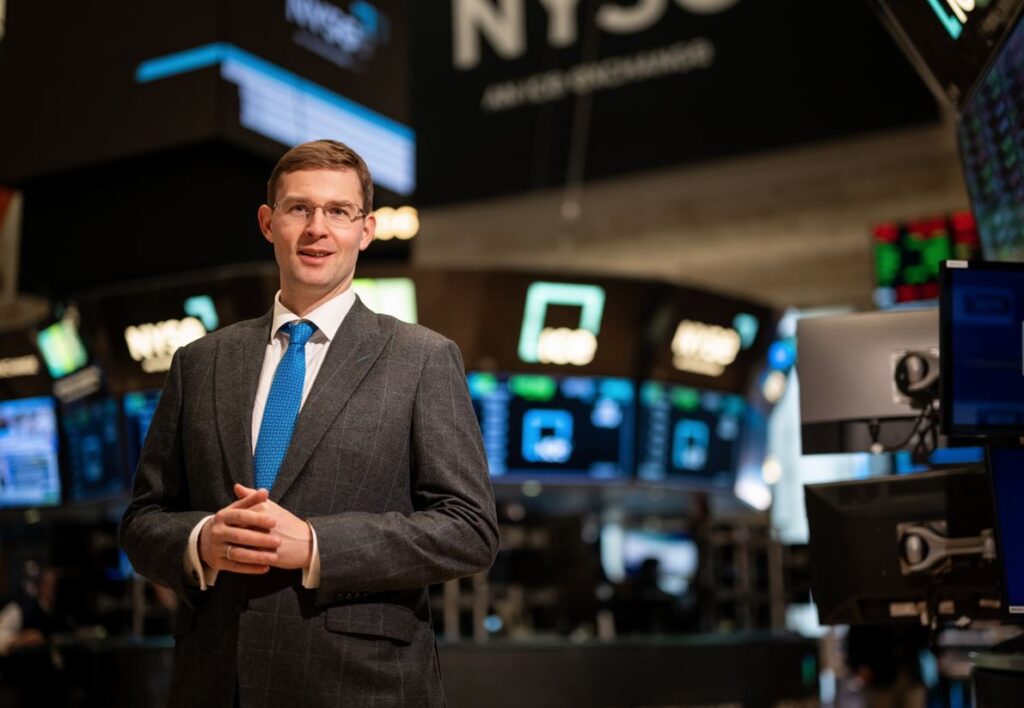
Timur Turlov’s Vision Beyond Kazakhstan
By the mid-2020s, Timur Turlov had already made Freedom Holding Corp the leading brokerage and digital bank in Kazakhstan. But his ambitions extended well beyond national borders. He saw Central Asia as a fertile ground for digital finance, where few global players had yet entered and where local populations were increasingly eager for modern services.
For Turlov, Kazakhstan was only the beginning. His long-term strategy revolved around replicating the Freedom SuperApp ecosystem in other countries, adjusting for local regulations but keeping the same integrated model of brokerage, banking, insurance, and lifestyle services.
Timur Turlov at the Helm of a Multi-Billion Dollar Empire
By 2025, Timur Turlov had transformed Freedom Holding Corp. into one of the most influential financial and technology groups in Central Asia. What started in a one-room office had evolved into a corporation with over 2,900 employees across 22 countries and a market capitalization approaching $10.2 billion.
The company’s operations now span multiple verticals:
- Brokerage: FRHC JSC, Freedom Global, Freedom24
- Banking: Freedom Bank Kazakhstan
- Insurance: Freedom Life, Freedom Insurance
- Digital Trading Platform: Tradernet
- Payments: Freedom Pay
- Telecom: Freedom Telecom
- Lifestyle Services: Arbuz, Aviata, Ticketon
This ecosystem serves more than five million clients, offering everything from stock trading to grocery delivery.
Financial Results and Growth Momentum
For fiscal year 2025, Freedom Holding Corp. delivered strong top-line expansion across its diversified business segments.
- Total revenue reached $2.05 billion, up 23% year-on-year (FY2024: $1.67 billion).
- Total assets stood at $9.9 billion as of March 31, 2025, up from $8.3 billion at the end of FY2024.
Segment Highlights
- Banking: Freedom Bank Kazakhstan’s customer base more than doubled year-on-year, expanding from 904,000 to approximately 2.5 million clients, underscoring strong growth in retail and SME services.
- Insurance: Underwriting revenue surged to $617.6 million, up 134% year-on-year, with the client base expanding from ~534,000 to ~1.17 million policyholders.
- Brokerage: Client accounts increased by 29%, reaching about 683,000, reflecting steady growth in both local and international markets.
- Fee and commission income totaled $505 million, up ~15%, mainly driven by brokerage services.
- Interest income rose to $864.5 million, up ~4% year-on-year, supported by margin lending, client loans, and the securities portfolio.
During FY2025, Freedom Holding completed the acquisition of Astel Group, reinforcing Freedom Telecom’s infrastructure and laying the groundwork for further digital ecosystem growth.
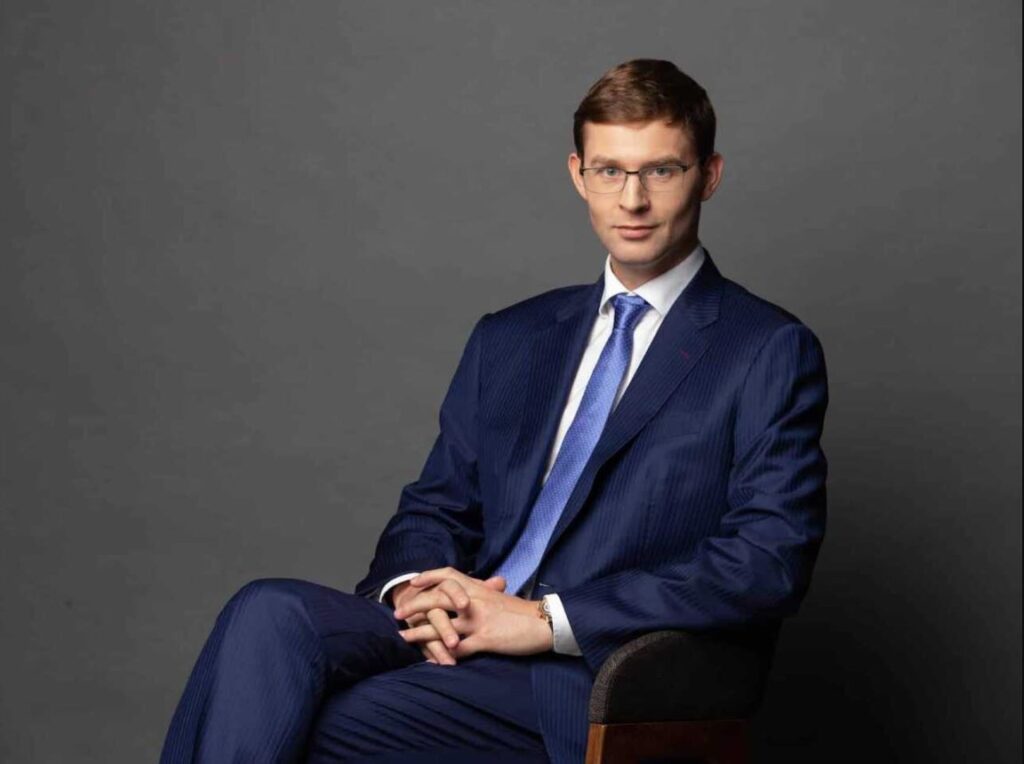
Timur Turlov as Kazakhstan’s Richest Man
By 2025, Timur Turlov had firmly established himself among the wealthiest individuals in Kazakhstan. Forbes estimated his fortune at $7.2 billion, placing him among the top 500 billionaires worldwide, while Vyacheslav Kim, co-founder of Kaspi, continued to lead the national ranking.
Unlike the oligarchs of the 1990s who built fortunes through privatization, Turlov’s wealth was created through persistence, innovation, and global integration. His career illustrates the emergence of a new type of post-Soviet entrepreneur: internationally minded, technology-driven, and adaptive to modern market dynamics.
Legacy and Future Ambitions
For Timur Turlov, success is measured not only in financial terms. His leadership extends into cultural and social initiatives, particularly through chess. As president of the Kazakhstan Chess Federation, he has organized international tournaments, positioning Kazakhstan as a hub for intellectual sport.
Looking ahead, Turlov’s ambition is clear: expand Freedom’s digital ecosystem beyond Central Asia, replicate the SuperApp model in Europe and the Middle East, and turn Freedom Holding into a fintech powerhouse capable of competing with global giants.


